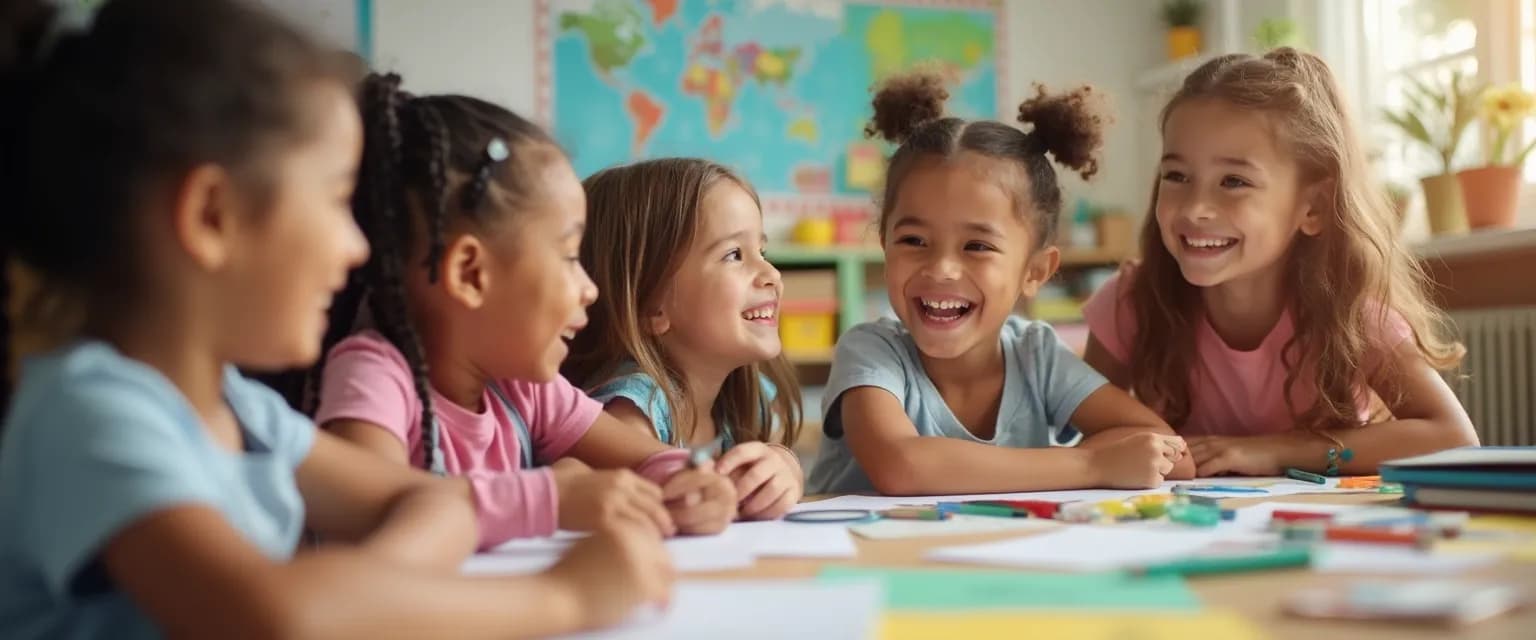7 Classroom Games That Boost Social Emotional Learning & Self-Awareness
Playful classroom games transform social emotional learning self awareness from an abstract concept into engaging daily practice. When elementary students develop strong self-awareness skills, they gain the foundation for healthier relationships, better decision-making, and improved academic performance. These seven carefully selected games make social emotional learning self awareness accessible and enjoyable for K-5 students while requiring minimal prep time from busy teachers.
Social emotional learning self awareness helps children recognize their emotions, thoughts, and values—and understand how these influence behavior. Through interactive games, students practice mindfulness techniques that strengthen their emotional intelligence in a supportive environment. These activities create natural opportunities for students to develop vocabulary around feelings, practice perspective-taking, and build confidence in expressing themselves authentically.
The beauty of these social emotional learning self awareness games is their flexibility. They fit seamlessly into morning meetings, transition times, or dedicated SEL blocks, making emotional intelligence development a consistent part of the classroom culture rather than an occasional add-on.
3 Quick Social Emotional Learning Self Awareness Games for Daily Practice
These bite-sized activities deliver powerful social emotional learning self awareness benefits in just minutes, making them perfect for regular classroom integration.
1. Emotion Charades
Materials: Emotion cards with words or emoji faces
Time: 5-10 minutes
Skills Developed: Emotion recognition, nonverbal expression, empathy
Students take turns selecting and acting out different emotions while classmates guess what's being portrayed. This simple yet effective game strengthens social emotional learning self awareness by helping children connect physical sensations with emotional states. As students observe others, they naturally develop their emotional vocabulary and recognition skills.
2. Feelings Temperature Check
Materials: Feelings thermometer poster (1-5 scale with corresponding emotions)
Time: 3-5 minutes
Skills Developed: Emotional self-assessment, emotional vocabulary, regulation awareness
Students indicate their current emotional state on a visual "temperature" scale at key points throughout the day. This quick check-in normalizes emotional awareness and helps students develop the habit of recognizing and naming their feelings—a cornerstone of social emotional learning self awareness.
3. Mirror Mirror
Materials: None
Time: 5 minutes
Skills Developed: Facial expression recognition, nonverbal communication, focus
In pairs, students take turns being the "leader" and "mirror." The leader makes various facial expressions while the mirror copies them exactly. This playful mirroring activity enhances social emotional learning self awareness by helping students connect specific facial movements with emotional expressions.
4 Advanced Social Emotional Learning Self Awareness Games for Deeper Development
These more structured activities build on foundational social emotional learning self awareness skills, creating opportunities for deeper reflection and growth.
1. Emotion Detectives
Materials: Short stories or picture books with emotional content
Time: 15-20 minutes
Skills Developed: Emotional inference, body cue recognition, perspective-taking
Students listen to stories and identify characters' emotions based on contextual clues. They discuss physical and mental signals that reveal feelings, strengthening their social emotional learning self awareness through analysis of others' emotional experiences. This detective work helps students recognize similar patterns in their own emotional responses.
2. Strength Spotting
Materials: Character strength cards, paper, markers
Time: 20 minutes
Skills Developed: Self-recognition, positive identity formation, confidence
Students identify and celebrate personal strengths through guided activities. This powerful social emotional learning self awareness exercise helps children recognize their unique qualities and builds confidence through small wins. When students understand their strengths, they develop more accurate self-perception.
3. Feelings Freeze Dance
Materials: Music player, emotion cards
Time: 10-15 minutes
Skills Developed: Emotional expression, body awareness, transition skills
Students dance freely until the music stops, then freeze in a pose representing the emotion the teacher displays. This movement-based approach to social emotional learning self awareness helps kinesthetic learners connect with emotional concepts through physical expression.
4. Compliment Circle
Materials: None
Time: 15 minutes
Skills Developed: Self-perception, receiving feedback, positive communication
Students sit in a circle and take turns receiving specific, authentic compliments from classmates. This structured positive feedback session enhances social emotional learning self awareness by helping students see themselves through others' eyes, often revealing strengths they hadn't recognized in themselves.
By incorporating these seven games into regular classroom routines, teachers create a supportive environment where social emotional learning self awareness becomes part of the daily experience. Students develop crucial emotional intelligence skills through play, making the learning process both effective and enjoyable.




